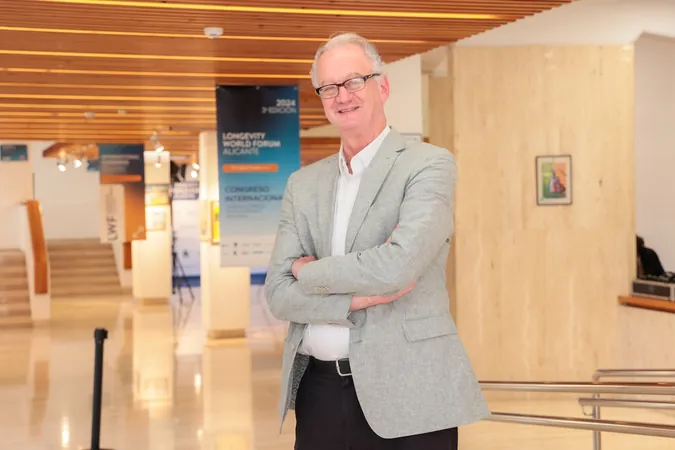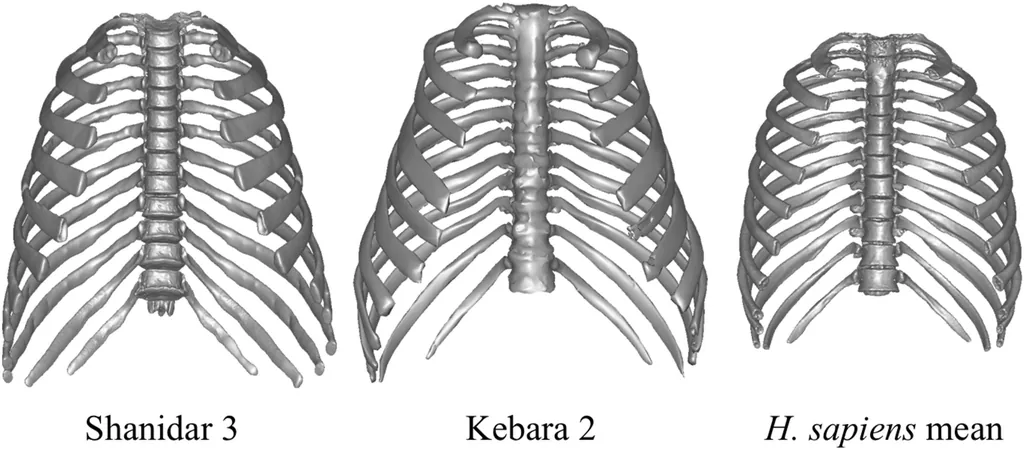
Toren Finkel Explores the Future of Aging: "We Might Have Hit a Biological Ceiling in Life Extension, But We're Not Done Yet!"
2024-12-14
Author: Siti
Toren Finkel, an American biologist and director of the Aging Institute at the University of Pittsburgh, recently kicked off his day with an indulgent breakfast of coffee with milk, croissants, and puff pastries, a break from his usual routine of intermittent fasting. At the cutting-edge Longevity World Forum in Alicante, Spain, Finkel laid out his vision for a future where aging could be managed like a disease, and shared insights into the current landscape of longevity research.
Finkel, who has dedicated over two decades to understanding the mechanisms of aging, emphasized that our knowledge is still evolving. “For years, aging was viewed as an inevitable decline, akin to metal rusting,” he remarked. However, groundbreaking studies using simple organisms like worms have unveiled that aging might be modifiable through genetic interventions, debunking earlier notions that it was a fixed process.
When queried about the natural programming of aging, Finkel noted the evolutionary roots of our genetics. “Our genes evolved to ensure growth and reproduction during youth. Once we fulfill that role, evolutionary pressure diminishes, allowing us to explore whether we can alter this trajectory," he stated. Yet, he acknowledged that this remains an open question in the field, hinting that the ultimate control over aging is still a puzzle.
The allure of "eternal youth" has historically captivated human imagination, from mythology to modern science. Finkel points out the duality of aging – the wisdom gained comes at the cost of physical decline. “This duality fuels the desire for solutions that retain our faculties while alleviating physical discomfort,” he explained.
On a personal note, Finkel practices a strict regimen of intermittent fasting, limiting his food intake to a narrow evening window. He explained that this approach helps stimulate autophagy, a cellular cleaning process that removes damaged components – a crucial defense against age-related diseases like Alzheimer’s.
Finkel's research also delves into the potential of drugs like metformin, traditionally used for diabetes, which has shown promise in extending lifespans in laboratory settings due to its metabolic regulation properties. “Currently, there's no approved drug specifically for aging, but metformin could serve as a proxy,” he suggested.
The conversation turned towards the emerging trend of anti-obesity medications like Ozempic and their potential implications for longevity. “We need to investigate both their effectiveness in calorie control and their long-term effects on life expectancy,” he urged.
Finkel also touched on the research surrounding senescent cells, dysfunctional cells that accumulate with age, potentially fueling diseases such as type 2 diabetes and cancer. He believes advancements in targeted therapies could shift the paradigm, moving from indiscriminate destruction to a more refined approach focusing on cellular vulnerabilities.
Despite progress, Finkel remains cautious about the current state of aging research. "We are confronted with complexities that make it unlikely we'll find a miracle drug for aging anytime soon," he noted. This nuanced understanding reflects the multi-faceted nature of aging which varies among individuals.
The sobering reality of life expectancy trends was highlighted by Finkel, who referenced recent studies showing stagnation in life expectancy increases in Western countries. Still, he remains optimistic about breaking through perceived biological limits. “Just as athletic training evolved to shatter records once thought impossible, we too can progress in understanding and combating aging,” he asserted.
In conclusion, Finkel's insights contribute to a growing dialogue about aging and longevity, ushering in new possibilities while acknowledging the challenges ahead. As we stand at this crossroads in biological science, the quest for understanding and mitigating aging is more relevant than ever.


 Brasil (PT)
Brasil (PT)
 Canada (EN)
Canada (EN)
 Chile (ES)
Chile (ES)
 España (ES)
España (ES)
 France (FR)
France (FR)
 Hong Kong (EN)
Hong Kong (EN)
 Italia (IT)
Italia (IT)
 日本 (JA)
日本 (JA)
 Magyarország (HU)
Magyarország (HU)
 Norge (NO)
Norge (NO)
 Polska (PL)
Polska (PL)
 Schweiz (DE)
Schweiz (DE)
 Singapore (EN)
Singapore (EN)
 Sverige (SV)
Sverige (SV)
 Suomi (FI)
Suomi (FI)
 Türkiye (TR)
Türkiye (TR)